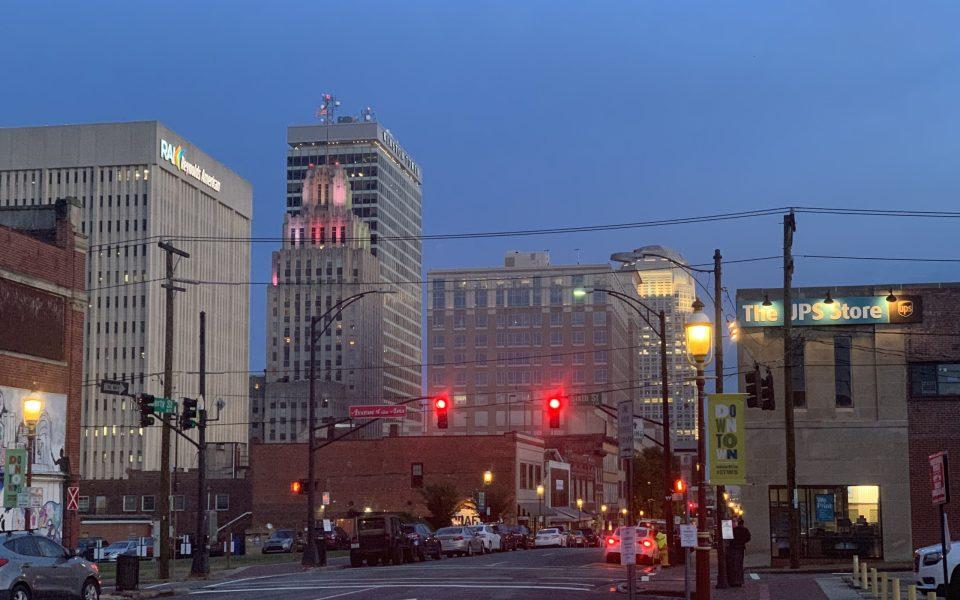
It is perfectly reasonable to expect a fight to break out in the bar.
When you’re young, it’s exciting. When you’re a bartender, it gets tiresome. Liability insurance makes bar fights a nightmare for owners. A cracked skull on the sidewalk outside can bring on ruination as much as any manslaughter charge when a drunk patron hits someone with their car.
I’ve seen fights over hurt feelings, mixed signals and pissing contests. A tussle happens, somebody gets tuned up, it ends. Security kicks you out. The involved parties lick their wounds and either move on or get arrested. That was the old approach. This new approach we’re seeing more often has more of a “Game Over” feel to it.
Within the past few years, I have had colleagues kick people out just to hear them pop off shots from their car; I have had friends beaten with guns in bars; I have had friends shot in bars by people there precisely to start shit on a Sunday afternoon. I’ve talked down shaky, wild-eyed men on the sidewalk who said they were about to murder every single patron inside.
I’ve had friends murdered in bars.
It’s the tip of the iceberg for every industry story I’ve heard or read about in other bars, other cities. But it is happening here, and it’s getting worse. Colleagues working doors have seen guns fall out of pockets when they were trying to check IDs. There have been drive-bys where bystanders get shot. There have been people letting off rounds in bar bathrooms while showing off to their friends.
These are people I know.
One incident involved a man shot at close-range by the pool table at a local spot, and as he fell out into the back alley leading to the parking lot, his assailant ran the opposite direction out the front door away from the scene. The victim, crawling down the alleyway with a crowd of people surrounding him, pulled out his gun and fired blindly down the alley, hitting two innocents and narrowly missing many others.
I’ve had people I care about hiding in low cabinets between the sodas and the mixers as someone stalked back and forth on the bar above them and a verifiable riot raged outside. Former employees of this bar said that the police were watching from across the street and didn’t get involved until a door guy needed an ambulance after his head was practically stoved in. There’s now a rigged up “panic hole” under the beer tower where an employee can hide when a fight breaks out so they don’t get shot.
This isn’t happenstance. This isn’t “one bar,” or one neighborhood. This is Winston-Salem. This is Greensboro. This is the bar scene now, and it’s not based on location, price point or clientele. We just assume everyone is packing, and our beliefs are justified, considering the number of close calls (and I mean close) that we already contend with. As for solutions, all we can do is try to keep our places safe for patrons.
A decade ago, I never expected to worry about guns in bars. This isn’t Deadwood. We aren’t in the Wild West with minimal repercussions and a bounty on your head. The music shouldn’t screech to a stop as a gunslinger walks in, “thankee-sai.” A card game, a round of pool, an accidental bump-up or a crowded line for the bathroom shouldn’t end in bloodshed. But it’s happening. Incidents get reported, but not all. You can’t (some won’t) report every incident to the news, or even the police. I’ve witnessed personally on-duty bar security and back of house cooks detained by police because they fit a description. To add to the confusion, no bar owner in existence wants to have the name of their place sullied with talk of violence or be known as “that bar.” It’s easier to thank your stars that no one was hurt, this time.
So we have to help ourselves.
A few years back, someone started a private group for the bartenders in our downtown radius. It’s a wide assortment of owners and employees who are all connected, about 180 or so, mostly in the walkable downtown area. It’s maintained, scrutinized for leaks and inaccuracies, and is constantly updated. This being a small(ish) town, we already see each other on our nights out or social occasions. We know each other, for the most part. We talk.
If someone causes a scene or breaks the rules and gets kicked out, word gets out. If an incident happens, we have an armada of Facebook stalkers on call that can find out what they ate for breakfast. Some other bartenders might’ve had a past experience with that person and can confirm their MO. They might be headed up the street to cause issues at your place of work, and often do.
This system allows us to catch the person before they even walk through the door. It’s been a boon for bar safety more than anything I’ve experienced in the industry. Good security procedures combined with a warning system about problem customers nearby is the best defense that has worked for us so far. But someone has to do something to warrant those warnings. It’s got to happen somewhere first.
The police aren’t as involved as they used to be and when they do respond, it’s after the fact, not preventative. Busy bars I’ve worked at used to hire off-duty cops on weekends. The price went up over the years, going from $38 an hour in 2010 to $55 an hour after the pandemic with a 4-hour minimum and two officers required for an occupancy over 100. That’s $440 a night, plus whatever other security is paid. It’s safe to say it’s not commonplace anymore. The beat-walking I’ve seen is mostly on sunny afternoons, not on busy bar nights.
And so the bar owners, the bartenders, the regulars, the people who want to responsibly have a good time and socialize now do so with the added danger of dumbasses with guns.
This is the new normal.
Join the First Amendment Society, a membership that goes directly to funding TCB‘s newsroom.
We believe that reporting can save the world.
The TCB First Amendment Society recognizes the vital role of a free, unfettered press with a bundling of local experiences designed to build community, and unique engagements with our newsroom that will help you understand, and shape, local journalism’s critical role in uplifting the people in our cities.
All revenue goes directly into the newsroom as reporters’ salaries and freelance commissions.


Leave a Reply